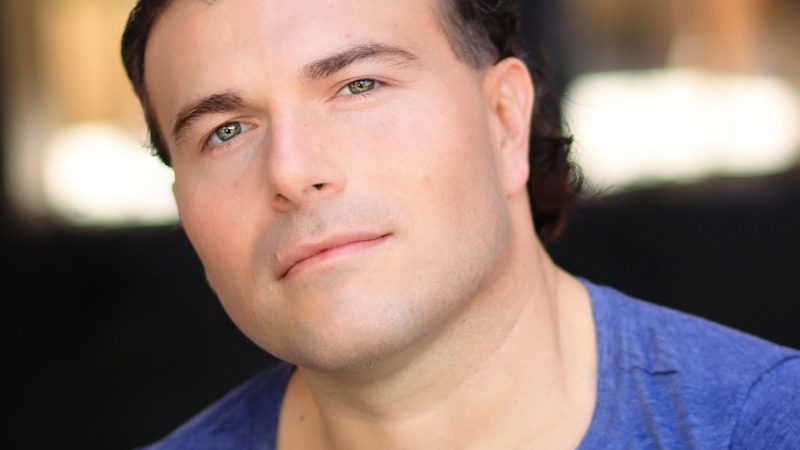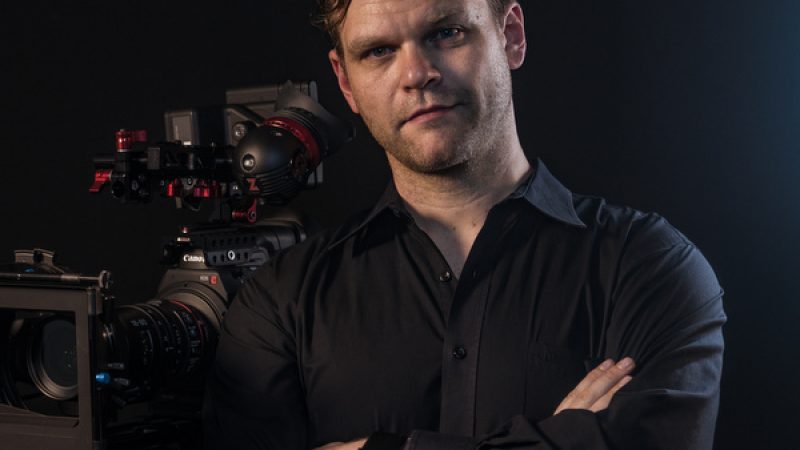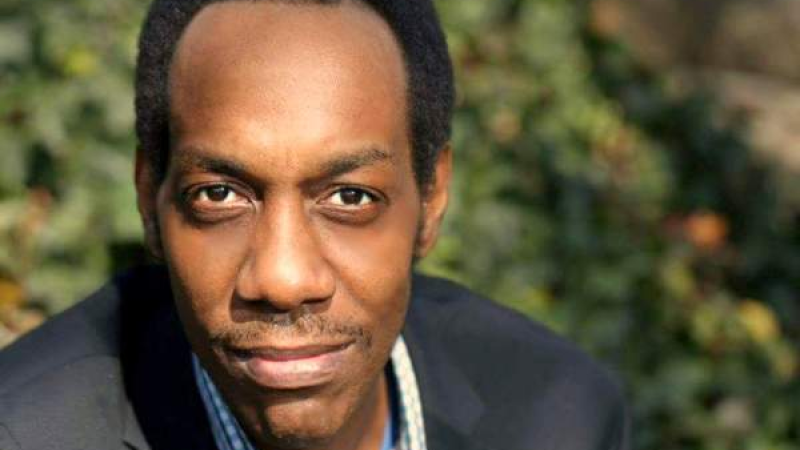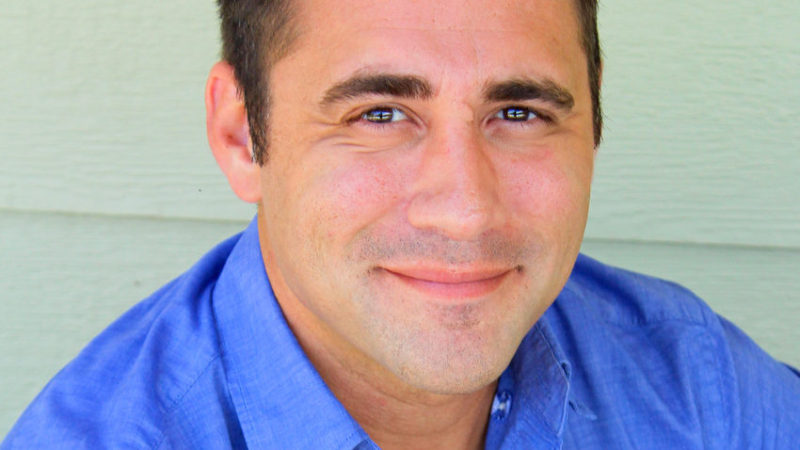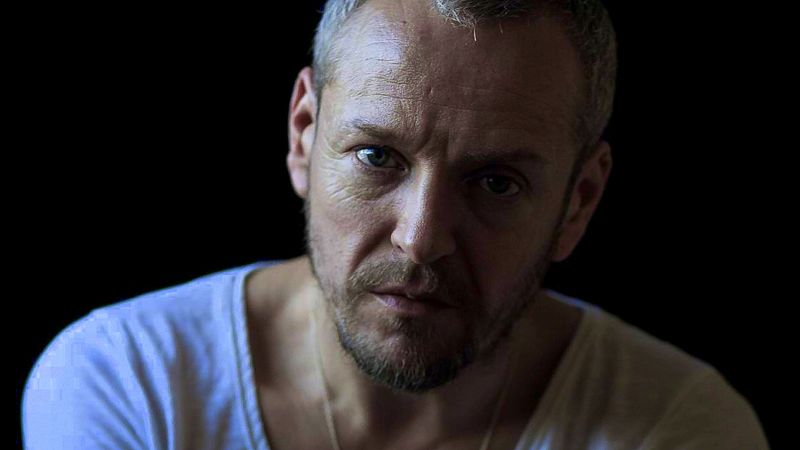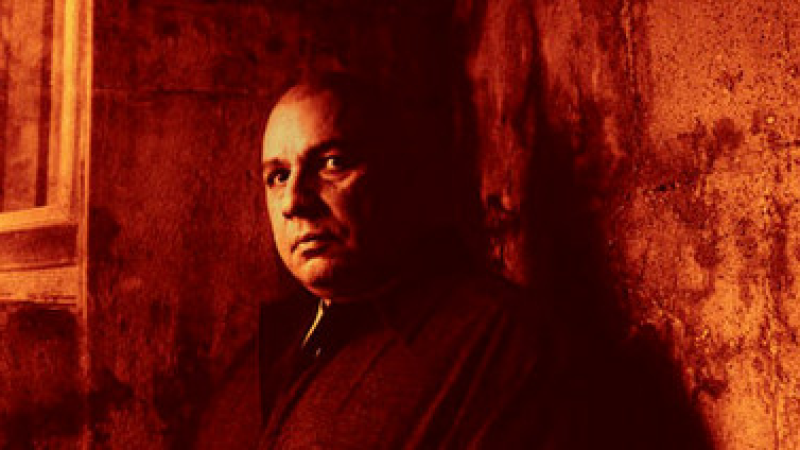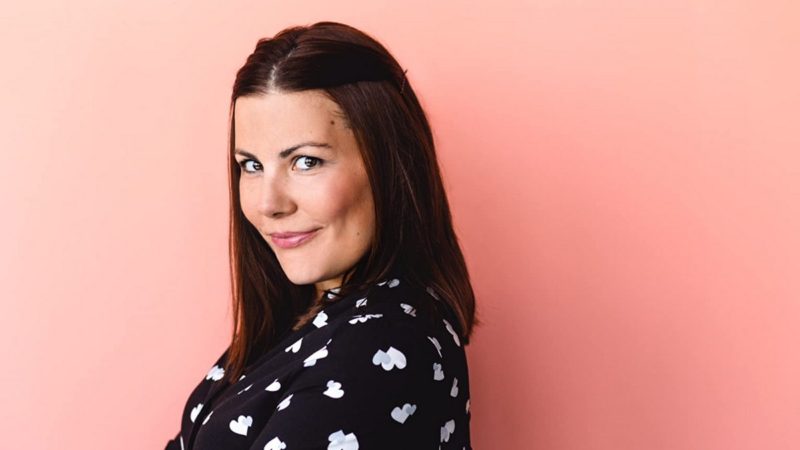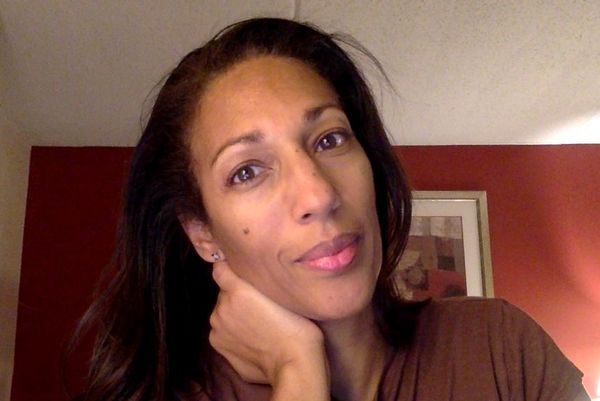
I was weaned on science fiction and horror by my science teacher Dad and English teacher Mom, who were both activists who loved the Arts. My brother ended up working as a writer at Marvel Comics. It was a potent combination that resulted in my working first as a professional actor, then as a playwright, and now as a screenwriter and filmmaker of Black Visionary work (Afro-futurism, horror, fantasy).
indieactivity: Did you study what you do?
Melody Cooper (MC): I studied theater at Adelphi University (BFA) and did a summer at the Royal Academy of Dramatic Arts in London before working as an actor in a lot of downtown theater (including the OBIE Award-winning MAMBA’S DAUGHTERS with Target Margin Theater). I wrote my first play DAY OF RECKONING to create a strong Black female role for myself. It won the Jane Chambers Award and was produced twice in NYC and also in FL at the New Theater. I have never studied writing in a classroom setting: my classroom has been the stage and the movie theater.
New York Stage and Film chose my second play SWEET MERCY, which is about the genocides in Rwanda and Darfur. It was developed in a workshop directed by Michael Sexton and starring Danai Gurira (of THE WALKING DEAD). The dramaturg assigned to me told me a writing class was not always necessary, and that it might be easier to maintain my unique voice by never taking one, But one thing I do is write every day. I also read scripts. And watch a lot of movies. I have always been a film buff, since a child. From Kurosawa and Fellini to Scorsese and Julie Dash, I could never get enough.
The Sound of Darkeness Teaser by Melody Coooper
My first screenplay, NORTHERN CROSS, was in the top 10% of the Nicholl Screenwriting Competition. I hone and rewrite every script several times. It’s a labor of love. I’ve written 6 other film scripts and 3 TV pilots. My horror script MONSTROUS won Third Place in Slamdance in 2014. This year, I was chosen for two Fellowships: AMC Networks Shudder Labs and the IRIS/Meryl Streep Writers Lab. I recently signed with Circle of Confusion.
What is your filmmaking process?
Melody Cooper (MC): I don’t work with an established technique…at least not intentionally. I often start writing by throwing down a scene that visually pops into my head and insists on being written. A lot of my process comes in the rewrite, which I always enjoy. It’s like a puzzle. Very often all that is needed for the work is there, just sometimes in the wrong order, or needing some fleshing out, a re-focus, or flipping of characters. The gem is there, you just have to excavate it and then cut, grind, polish.
As a director, I like to be prepared. The more preparation and the earlier it is, the better. It didn’t always work out that way during the shoot for THE SOUND OF DARKNESS, but when I was prepared, i.e. thinking through a special effect months in advance and consulting an expert long before shooting, it absolutely helped. The other important part of the process for me is to ask advice from those who know what they’re doing. Kasi Lemmons, director of one of my favorite films, EVE’S BAYOU, told me “Be prepared, but open to improvisation. Listen to collaborators, but follow your heart.” GREAT advice.
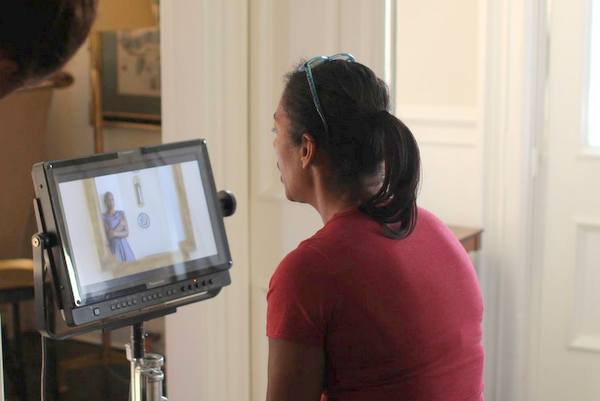
Tell us about the work you have directed?
Melody Cooper (MC): I am a first time director with my short proof of concept for THE SOUND OF DARKNESS, a supernatural thriller. I did not want to direct it at first. I was actually pretty adamant in disagreeing with two producers. I insisted that an experienced director would do a better job. However, they and several people convinced me that as a writer who had strong ideas and passion for the project, I had the vision needed to direct. They told me they would get me a strong crew and surround me with people who would help execute that vision. And I am so glad that I said YES.
Everyone starts somewhere. Some in the classroom, some via on the job experience. The first step in being a director is learning when to say Yes, and when to say No. I decided that if I was going to create my work, that I wanted to learn as much as I could about the process. So I also co-produced, which made everything much more difficult, but was a great learning experience. I location scouted, I helped secure crew, found my wonderful DP, Cybel Martin, created a fundraising campaign, helped negotiate contracts and arranged for insurance. I did my own press outreach and got front page feature in a local NY paper, and a large feature in USA Today.
I partnered with The Black and Missing Foundation to raise awareness about a key aspect of the film: the fact that there are 64,000 missing Black women and girls in the U.S. I had to say No to some people for various reasons along the way, which wasn’t always easy, but when I stayed focused on the art as well as getting it done right from a business perspective, the balance saw me through. For a larger project, I think I’d want to focus on the writing and directing and leave the producer’s hat on someone else’s head. But I will never underestimate the producer’s role, and I now understand many of the complex aspects that each artistic choice impacts.

Do you take courses to improve your craft?
Melody Cooper (MC): Not yet. But I want to. Though I did take an editing class a few years ago when I’d decided I wanted to try to make a documentary on privatized prisons. I wanted to learn the film language of the editor so I could work better with one. I’ve been told I don’t have to learn my way around the camera to direct, but I want to and how could it not help? I have had the wonderful opportunity to workshop my work in stellar programs with incredible people. I recently worked with Pat Verducci (formerly of Pixar) and Lisa Cortes (producer of PRECIOUS) while at the Meryl Streep Writers Lab.
There were other amazing mentors available to us as well, and the same for Shudder Labs. Many of the various labs available for filmmakers (the best are via competitions) can be invaluable, not only in learning and honing your craft, but also to network and make professional connections. The Sundance Film Institute recently requested THE SOUND OF DARKNESS to consider for one of their labs based on a recommendation from a mentor. I’ve also applied to Tribeca All Access.
How do you combine directing and writing?
Melody Cooper (MC): For me, one dovetails into the other. As I write, I imagine how I would direct the film and that helps shape the work. As I direct, what does and doesn’t work in the writing becomes crystal clear and I can make adjustments, abandoning and clarifying where needed. It all helps my subsequent scripts in immeasurable ways. For one, I’m much more concise, my structure is cleaner, I use the power of the visual to tell the story and reveal character in smarter, more impactful ways. Less is more, and as a writer, that has never been clearer to me than when I direct my own work.
How did you get into the film business?
Melody Cooper (MC): Via acting (I worked in some TV and film). Then playwriting was my bridge to screenwriting. When SWEET MERCY was performed at New York Stage & Film, a film director, Claudia Weill, saw it and kind of took me under her wing to help develop it. I flew out to LA to work on a reading and stayed with her wonderful family. By that point my first film, NORTHERN CROSS, was a project I’d decided to work on. Wow. I just realized how important it was that this vote of confidence was from one of the first successful women directors in the business, and how that set the stage for me to eventually try my hand at directing.
How do you turn an idea into a screenplay?
Melody Cooper (MC): I’ve disciplined myself to create an outline. But first, if I can imagine the beginning of the film, and in my head work through the main plot points through to the end, AND come up with a title, then I feel ready to start outlining and then writing it. This process can all occur within half an hour of an idea or take a day or two. Once I’ve worked through the basic story, it’s like a horse chomping at the bit to get out of the gate at that point. I write quickly and non-stop once I start. Then the second stage of rewrites comes in.
What writing tip or idea can you give young writers?
Melody Cooper (MC): Write every day. Even if you don’t feel like it. Even if you feel blocked. Write. Even if it’s one sentence or a rewrite. This is essential. You are exercising an artistic muscle that only gets better with use. Write wherever it inspires you. In one spot in your house, or like I do: Anywhere (garden, train, museum, plane, forest, library…)
What is is like working in the Hollywood system?
Melody Cooper (MC): I’m just now learning that from mentors and my manager at Circle of Confusion. I’m honing treatments, pilots and pitches. I pitched for the first time in the NY Finance Lab and both production companies I pitched to were intrigued enough to request a read of the script. Most of us have fear of pitching, and yeah, I was nervous, but I have a passion for my project and that saw me through it. I think that’s key in the industry: a balance between passion and business.
You have to have the former and it helps to be very aware of the latter. I’ve been told that the fact that I’m a fairly quick and prolific writer is very helpful. I also take notes well, and love collaborating. As a director? That’s another story altogether. But the system is looking for more women, and people of color to both write and direct, and as long as that remains true, I think working in the system can and will be fruitful. But one option I keep open is the idea of working outside of the system through web series and self-distribution. Never let a system stop you from doing the work you want to do.
What do you want to change about the film business?
Melody Cooper (MC): There need to be more women and more Black writers and directors, especially in genre films. While there have been great strides lately (Karyn Kusama’s THE INVITATION is a great example), we need to be behind the camera as well as in front of it. Women and people of color need to be able to tell our own stories…and even the stories of others. I started a group of writers and filmmakers called ORIGINS to support and create Black Visionary work for this reason. Our members include NAACP Image Award winner Steven Barnes, British Fantasy Award winner Tananarive Due, and Nebula Award winner Nnedi Okorafor.
What do you want to be remembered for?
Melody Cooper (MC): Creating extraordinary, high quality genre work that is challenging, meaningful and engaging, and opens up horizons for other artists who have not had a voice on screen.
Let’s have your comments on Melody Cooper interview or on Facebook, Instagram, or Twitter
Socials
Website
Facebook
Twitter
IMDB
LinkedIn
Vimeo
Craig Conway Story Dives into Art, Bouquet of Stage & Film Acting Work
Craig Conway reveals his Future Directorial Film Debut

